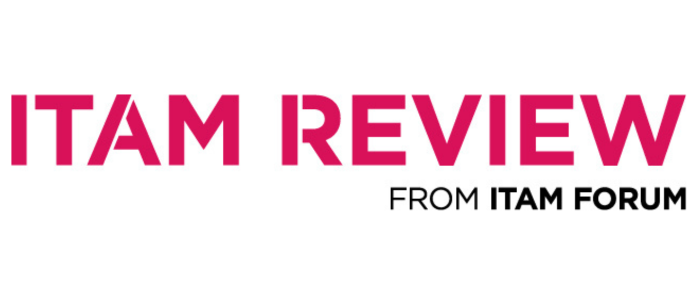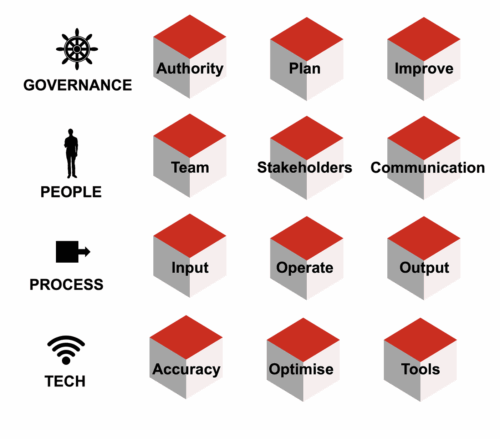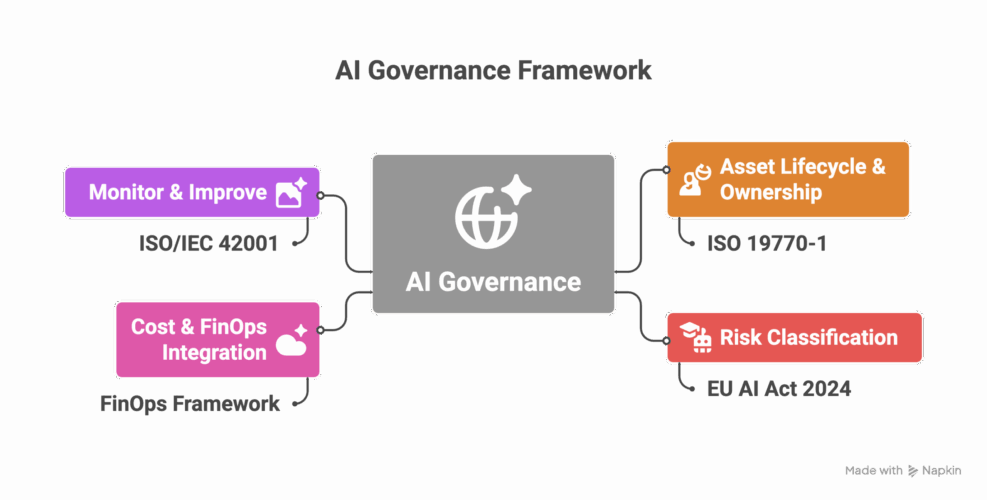Will human capital shape the course of the tech channel in 2024?
The following article from Hayley Mooney, GM UK at Crayon explores the biggest trends shaping the tech channel in 2024, including the growing role of AI in ITAM, addressing the tech skills shortage, and the positive impact of increased diversity in the workforce.
Will human capital shape the course of the tech channel in 2024?

The impact of AI on the tech sector has been nothing short of profound, and its resonance as a buzzword shows no signs of waning. But amidst such a dynamic landscape, you can’t help but wonder what other breakthroughs await us and what trends are set to characterise the industry in 2024.
We currently stand a few weeks into the year and the tech sector is ripe for disruption. The channel industry in particular is poised for substantial changes that promise to redefine the very essence of how organisations operate and innovate. I anticipate that the following trends and developments will wield significant influence in shaping the course of the next year and people will be at the heart of all of them:
AI-powered ITAM for business innovation
Optimisation has long been front of mind for organisations, especially when looking to improve efficiency and reduce costs. While this priority remains unchanged for customers in the new year, it’s no surprise that the integration of AI in ITAM tools is also on the roadmap for virtually every service provider in 2024. In addition to keeping pace with competitors, this strategic move will deliver more intelligent, automated, and cost-effective solutions.
However, realisation of these benefits hinges upon the execution of a robust deployment strategy and collaborative efforts among a diverse set of stakeholders, extending well beyond the initial integration phase. Only then will be able to witness the burgeoning capabilities of ITAM tools and their continuous refinement afforded by machine learning. Companies that adeptly adopt these AI-powered solutions, allowing them to complement human efforts, will differentiate themselves in a highly crowded and competitive market, exemplifying AI as a key player in boosting the digital economy.
Addressing the tech skills shortage
AI is undoubtedly a significant driver of business, and the technology skills shortage has long been a pervasive challenge across the channel, prompting businesses to invest in workforce development. The tech industry, particularly channel partners, assume a strategic role in understanding clients’ needs and developing tailored technological solutions.
The onus, therefore, will fall on the channel to upskill its workforce, ensuring they can meet the evolving needs of their clients. This is why I helped to found Tech Channel Ambassadors with a mission to widen access to opportunities across the tech industry, particularly for disadvantaged groups. We work with channel organisations to help develop their strategies for more equitable long-term recruitment. Through our collaborations with schools, we are able to raise awareness amongst students of career opportunities in the tech channel and nurture the next generation of skilled tech employees.
Diverse hiring becoming the norm in tech hiring
While progress has been made across the channel, not all career opportunities are universally accessible. We must encourage women to consider careers in technology, but also the industry will gear up to prioritise neurodivergent talent, particularly as we come to grips with AI as an assistive tool for neurodivergence in the workplace
According to Gartner, by 2024, a quarter of Fortune 500 companies will actively adopt diverse hiring practices. This shift will go a long way in enhancing employee engagement and productivity and encourage innovation. The organisations that are already spearheading these efforts will play a role in significantly increasing inclusivity across the industry, whether it be through sharing best practices or implementing outreach programs aimed at discovering and nurturing neurodiverse talent. Businesses that fail to genuinely integrate diversity within their ranks risk disadvantaging themselves.
Investing in your people as a catalyst for change
In 2024, AI’s enduring impact on the tech landscape is just the beginning. Beyond the immediate ripples of innovation, this year promises to unveil the profound implications of integrating the technology into the very fabric of industry operations. Amidst the models and data streams, it is the human element that will prove indispensable in guiding businesses through turbulent times.
In the coming months, the trajectory of the channel industry will be shaped by a strategic investment in its people. In particular, the emphasis on investing in the workforce – both the existing talent pool and the untapped potential of aspiring professionals – emerges as a key determinant of success. This deliberate investment in human capital, if executed with precision and foresight, holds the potential to unlock a plethora of benefits, and address the persisting skills gap.
Can’t find what you’re looking for?
More from ITAM News & Analysis
-
Stop Shadow IT Before It Hurts Your Business
Shadow IT often spreads quietly and quickly becomes a serious risk. Just look at the UK-based supermarket chain Co-op. A little-known remote maintenance tool used by an external IT provider was compromised. The result? Nearly 800 ... -
Why ITAM Forum Should Join the Linux Foundation: My Rationale and Your Questions Answered
TLDR. ITAM Forum has the opportunity to join the Linux Foundation as a stand-alone, self-funded project. This article covers a) What’s happening b) Why I think it’s a great move for the ITAM Forum and c) ... -
Microsoft Pricing Changes: EA Customers Face Price Increases
From 1st November 2025, Microsoft will remove all tiered pricing for Online Services under the Enterprise Agreement. This means all customers renewing or purchasing new Online Services after this date, will receive standard level A pricing ...
Software Licensing Training
Similar Posts
-
Eight steps towards AI governance
I delivered our “Managing AI as an Asset” training course the day before the Wisdom conference last week. Thank you to those who attended and provided feedback. It will be available on the LISA platform before ... -
Crawl, Walk, Run applied to ITAM Best Practice (Practical ITAM)
Since the ITAM Forum has been working in strategic partnership with the FinOps Foundation, I’ve come to admire the Crawl, Walk, Run approach to best practices, as it allows improvements and recommendations to meet the organisation ... -
Stop Shadow IT Before It Hurts Your Business
Shadow IT often spreads quietly and quickly becomes a serious risk. Just look at the UK-based supermarket chain Co-op. A little-known remote maintenance tool used by an external IT provider was compromised. The result? Nearly 800 ... -
AI Governance Through an ITAM Lens: Treat AI as a Status Change, Not a New Asset
Managing AI in the enterprise is a team sport. In this article, I want to explore specifically what ITAM brings to the table as we enter the AI era. As I’ve mentioned in previous articles on ...




